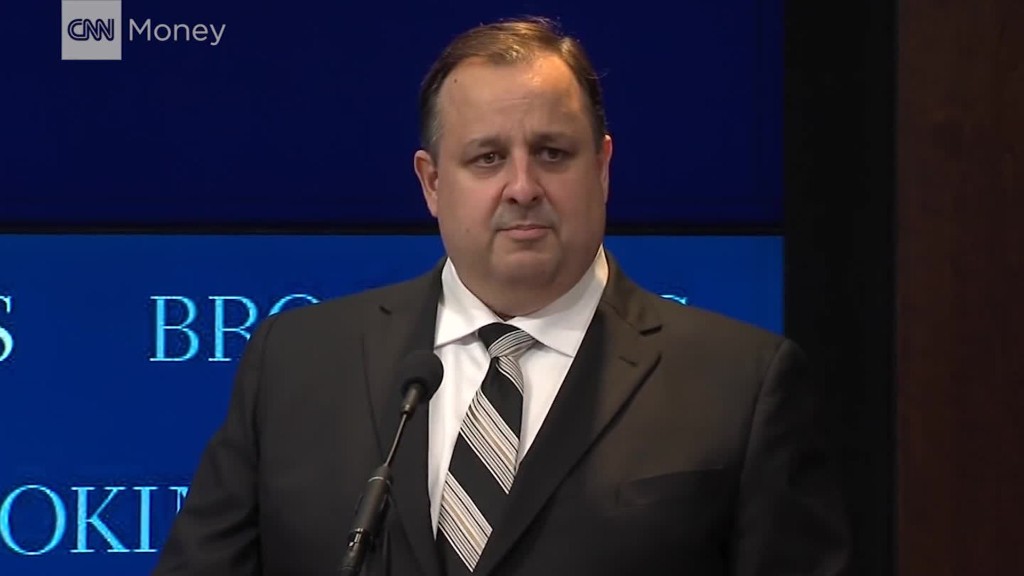
The government's former top ethics watchdog says he thinks more work needs to be done to make federal ethics rules stronger.
Walter Shaub, who resigned as director of the Office of Government Ethics last Thursday, explained his decision on ABC's "This Week" on Sunday.
"I really always thought that the ethics rules were strong enough to protect the integrity of the government's operations," he said. "My recent experiences have convinced me that they need strengthening, and frankly, they convinced me I've achieved all I can possibly achieve in this job."
Before this year, Shaub was unknown outside of all but a few of the wonkiest circles in Washington, D.C. But his profile shot up in January after he publicly criticized President Trump's decision to not divest his business interests.
Trump refused to sell his business holdings as president. Instead, he transferred them into a trust in his name. Any business profits will ultimately accrue to him when he leaves office.
Shaub at the time described Trump's plan as "wholly inadequate."
Related: Ethics official who sparred with Trump is leaving government
Shortly after Shaub spoke at the Brookings Institution in January, White House chief of staff Reince Priebus told ABC that the ethics director "ought to be careful, because that person is becoming extremely political."
Asked to respond to those remarks Sunday, Shaub called them a "fairly explicit threat" and said the comments were "emblematic of how the interactions with the White House have been since the beginning of this administration."
Shaub made similar comments in a statement announcing his resignation on Thursday.
The White House did not respond to requests for comment from CNN on Sunday.
The White House said in a statement on Thursday that Trump will nominate a new office director "in short order." The director serves a five-year term and requires Senate confirmation before taking office.
Shaub and the White House had a contentious relationship that lasted through his final days as ethics director.
The week before he resigned, he asked the White House to look into whether its own ethics lawyer might have violated the administration's conflict of interest rules. Shaub was responding to a letter from Democratic lawmakers.
The administration told CNNMoney at the time that Shaub and the Democrats were "distorting facts and attempting to tarnish the White House for purposes of a partisan agenda."
Related: Ethics watchdog says White House lawyer might have broken rules
The ethics office works with executive branch employees to avoid conflicts of interest, though it does not have enforcement power.
That means that the ethics office relies on the White House to help support its program. Shaub, who previously worked in the Office of Government Ethics during the terms of former presidents George W. Bush and Barack Obama, said other administrations were more supportive of the office.
"Lacking that support, the only other avenue OGE has to leverage change is communicating with the public and enlisting them," he said.
Shaub said last week that he has taken a job at the Campaign Legal Center, a nonprofit, nonpartisan advocacy group for tougher campaign finance laws. In a statement released by the center Thursday, Shaub said he would work on ethics reform at all levels of government.
On Sunday, Shaub told "This Week" that he thinks the new job will give him "freedom" he did not previously have.
"I really think I may be able to have more impact from outside the government than inside at this point because I'll have a lot more freedom outside the government," Shaub said.
